15 Healthy Foods to Eat Before Surgery (& What to Avoid)
No matter what type of surgery you are facing, you’ll want to focus on real, unprocessed foods that are nourishing and easy to digest. Here are healthy foods to eat before surgery that will promote easy recovery and avoid constipation. I’ve also included a list of foods to avoid.

Healthy Foods to Eat Before Surgery
This list of the best foods to eat before surgery can help reduce inflammation in the weeks leading up to your surgery date.
All of the foods listed here contain nutrients and a balanced diet to support your health in the weeks before and after surgery.
However, please note that most healthcare professionals will recommend avoiding high-fiber foods like fruits, vegetables, whole grains, legumes, and nuts in the 24 hours immediately prior to any procedure involving anesthesia.
This is because it takes a while for your body to digest fiber fully, meaning that it may still be in your digestive tract at the beginning of your surgery.
So, depending on how long you have to prepare for surgery, you may wish to eliminate certain foods in the days leading up to surgery (your doctor can give you more exact instructions).
Pre-surgery diet
The day before your surgical procedure, you will likely have a prescribed diet from your doctor. You may even be asked to fast or avoid solid foods. It all depends on the kind of surgery you are having.
Be sure to ask your doctor if you can take your regular medications the morning of your surgery.
1. Leafy Greens
Spinach, kale, arugula, and other leafy greens contain a variety of minerals and vitamins that boost your immune system and reduce inflammation before and after surgery.
Their vitamin C content is particularly helpful, as it promotes healing and plays a role in the formation of collagen.
There are lots of ways to include more leafy greens in your diet. You can try making kale chips, blending greens into soups and smoothies, or even using larger raw leaves as an alternative to wraps!
If you are on a pre-surgery diet and want to get more veggies, try making a green smoothie. Another good option is to make pesto, replacing at least half of the basil in the recipe with a leafy green of your choice, such as baby spinach.
If you have bleeding problems, be sure to ask your doctor if you can consume dark leafy greens as they are a rich source of vitamin K.
2. Cruciferous Vegetables
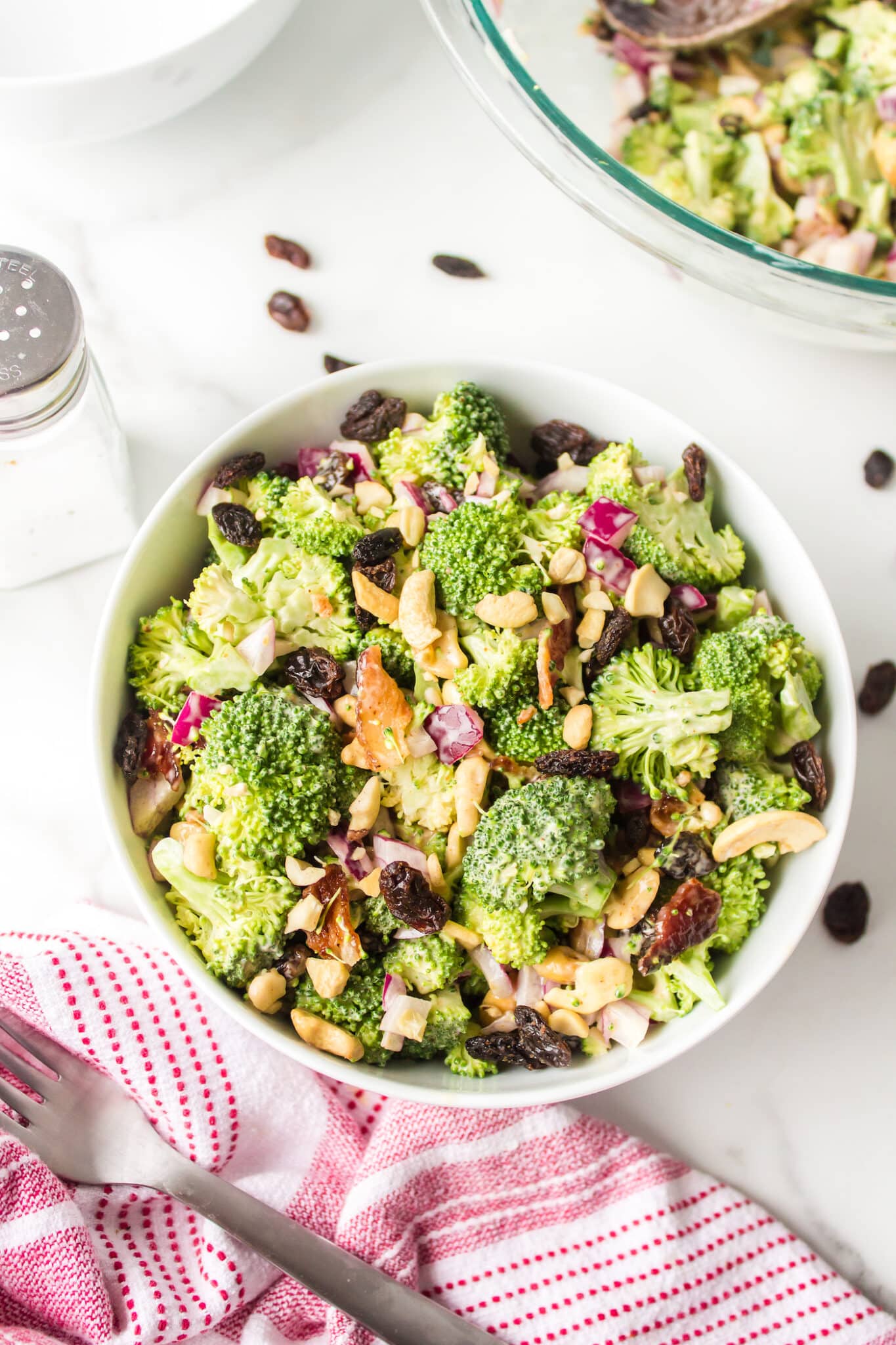
Cruciferous vegetables like broccoli, cauliflower, cabbage, and Brussels sprouts are rich in vitamins, minerals, and antioxidants.
They also contain glucosinolates – compounds that your body breaks down into isothiocyanates. Research has shown that these help suppress inflammation and have antibacterial properties, both of which can help you heal more quickly.
Some people find cruciferous vegetables bitter and don’t eat them as often as they should. But there are lots of ways to make them taste amazing so you can enjoy them on a regular basis!
Roasting them rather than boiling/steaming them is a good option, as it develops their flavor and gives them an appealing texture. You could also try blending them into a soup, serving them with your favorite sauce, or experimenting with herbs and spices to enhance their flavor.
3. Berries

Strawberries, raspberries, blackberries, and more are excellent immunity boosters and are packed with the vitamin C you need for collagen production.
They also contain lots of anthocyanins, the pigments that give them their rich and vibrant colors. Anthocyanins play an important part in reducing inflammation, so they’re perfect both before and after surgery.
Berries are sweet and delicious when served just as they are, or you can mix them with other foods like cereal or yogurt. I most often use them in smoothies as frozen organic berries are affordable.
Don’t be afraid to add them to savory recipes too – you can use blueberries to make a wonderful sauce for meat, for example, or add fresh raspberries to a leafy salad!
4. Citrus Fruits

Oranges, lemons, grapefruits, and limes are brimming with vitamin C and folate, which have been shown to boost immunity and limit inflammation.
And there are lots of fun ways to get more citrus into your diet! Lemon juice is a great addition to everything from salads to pasta and adds lots of zesty flavor. Orange juice, meanwhile, is delicious combined with ginger, soy sauce, and oil and served as a simple sauce for meat and fish.
You can also try adding slices of lime or lemon to your water or broiling half a grapefruit topped with a mixture of brown sugar, butter, cinnamon, and sea salt. Delicious!
5. Salmon

Salmon – and other oily fish like sardines and mackerel – are great sources of omega-3 fatty acids. Studies have shown that these can be very helpful for anyone undergoing surgery as they help boost immunity and reduce inflammation.
Salmon also contains selenium, another nutrient that supports the immune system and has anti-inflammatory properties. Plus, of course, salmon is high in protein, which is essential for helping you heal quickly after surgery.
Salmon is one of the most healthy proteins that is quick and easy to cook, suitable for frying, roasting, grilling, or poaching. Alternatively, consider using canned salmon, which is very convenient and great for salads and sandwiches!
Note: some healthcare providers recommend avoiding fish and fish oil in the two weeks leading up to surgery. This is because it was once felt that fish oil could increase the risk of bleeding. New research indicates that this may not actually be the case, but you should check with your doctor to be sure.
6. Turmeric
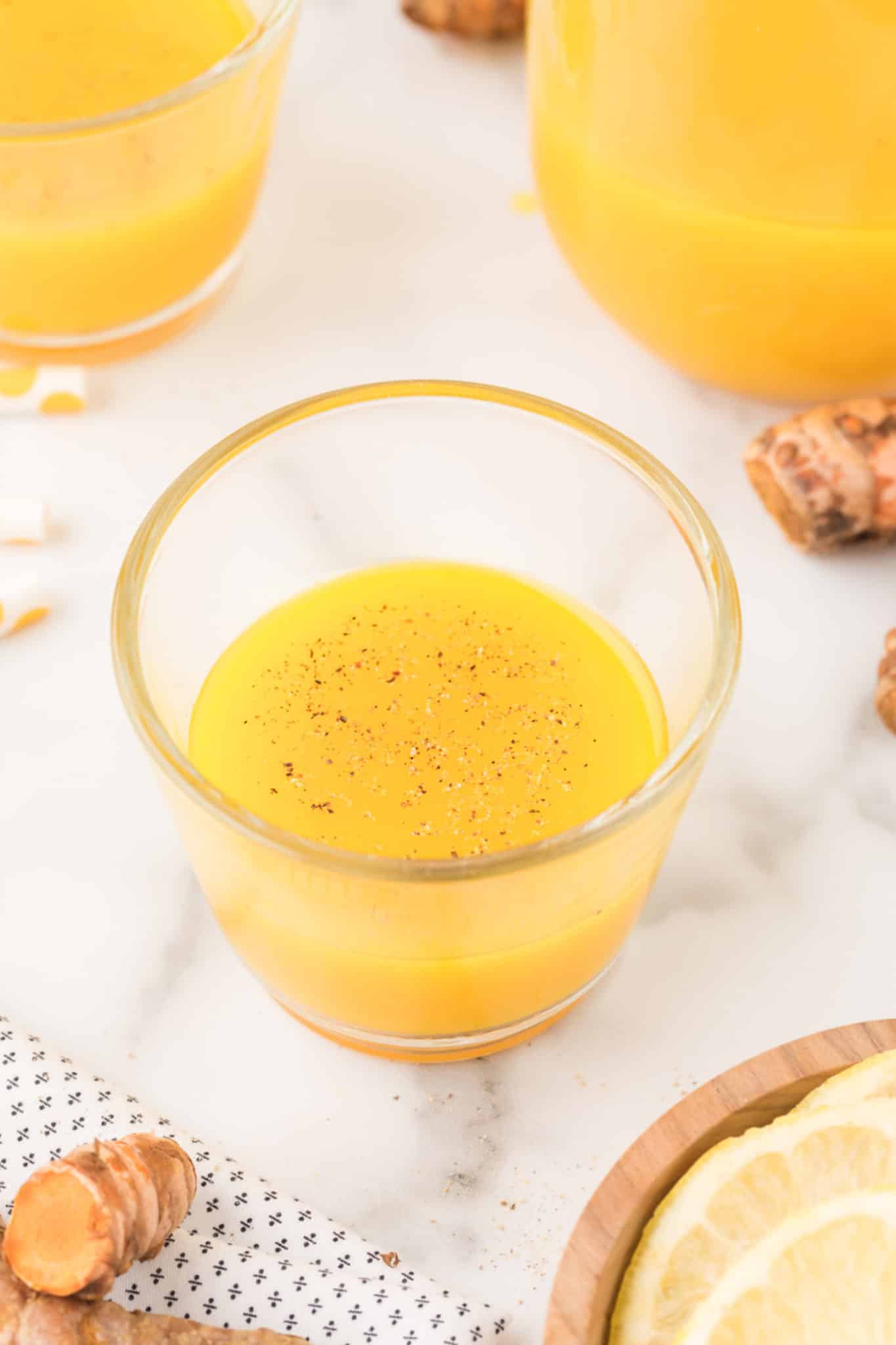
With a rich, yellow color and pleasant, earthy flavor, turmeric is one of the main ingredients in curry powder. It contains an active ingredient called curcumin which has some great benefits before surgery.
Studies have shown it can help fight inflammation and support the immune system.
There are lots of ways in which you can use this versatile spice, from adding it to scrambled eggs or soups to baking it in bread. But it’s actually better to buy turmeric supplements than to rely on food as your main source. That’s because the amount of curcumin in turmeric is quite small, and our bodies don’t absorb it very well.
For that reason, most of the turmeric supplements you’ll come across include piperine, a substance found in black pepper. Piperine helps you absorb curcumin much more effectively.
7. Ginger

There are many benefits associated with consuming ginger. This spicy little root – related to turmeric – contains a compound called gingerol, which has antioxidant properties and helps curb inflammation. It has been proven to help reduce nausea and vomiting after surgery and can also help fight infections.
You can grate ginger and stir it into sauces, add it to your tea, or whiz together ginger, an orange, and coconut water to create ginger shots. You can even enjoy candied ginger as a sweet treat.
However, you should speak to a medical professional about consuming ginger in the two weeks leading up to your procedure. Although there is no medical research to support it, some experts feel that ginger can lead to an increased risk of bleeding after surgery.
8. Sweet Potatoes

Delicious sweet potatoes are incredibly healthy, packed with vitamins A and C, and high in manganese. Manganese is particularly useful before surgery because it helps in the formation of collagen, which is needed for wound healing.
Sweet potatoes are also very versatile! Cooking them can be as simple as baking them in the oven, then splitting them and adding a little oil and salt. You can also use them to make wedges, fries, soup, curries, and lots more!
But I recommend speaking to your doctor about eating sweet potatoes in the week leading up to your surgery. This is because they contain compounds called solanaceous glycoalkaloids, which may make it take longer to recover from the effects of anesthesia.
9. Avocado

Avocados are great for supporting the immune system and controlling inflammation, packed with vitamins B6, C, and E. They also have antimicrobial properties and can help protect you from infection.
They have a mild flavor that works well in both sweet and savory dishes. You can slice them into salads, blend them into smoothies, use them to make guacamole, or smash them and serve them with a poached egg on toast!
Another great idea is to use well-mashed avocado mixed with Greek yogurt in place of mayonnaise.
10. Greek Yogurt

Protein-packed Greek yogurt may be just what you need when you’re facing surgery, as it helps support your immune system and plays an important part in tissue repair.
It also contains lots of other nutrients to help with your recovery, including zinc, selenium, vitamins, and minerals.
Look for unsweetened Greek yogurt rather than flavored varieties, which often contain lots of added sugar. You can always add your own sweet-tasting fruits, like mashed bananas, ripe strawberries, or mango.
11. Nuts and Seeds
Nuts and seeds are very nutrient-dense and ideal for maintaining your good health before and after surgery. They contain lots of protein to help repair tissues, a wide range of vitamins and minerals, plus healthy fats and collagen-boosting manganese.
Nuts are also a good source of vitamin E which is good for your immune system and protects your cells from damage.
Both nuts and seeds make great grab-and-go snacks, although they’re quite high in calories, so you’ll need to keep an eye on your portion sizes. You can also add them to salads and stir-fries, blend them into smoothies, or use them to top yogurt or cereal.
Avoid buying salted nuts, which are high in sodium and usually contain added fats.
12. Quinoa
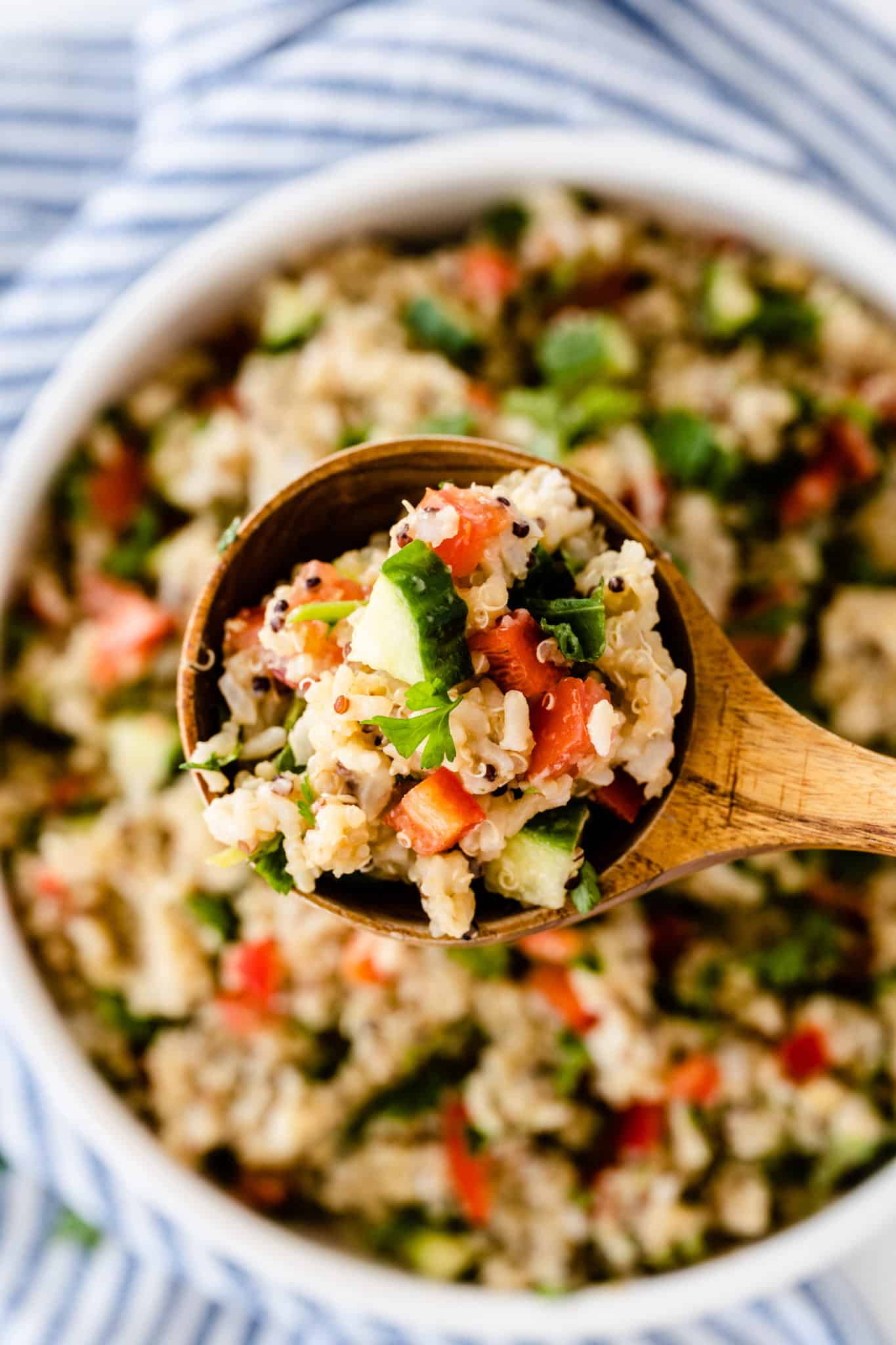
Quinoa is an excellent food to consider eating before surgery. It’s high in plant-based protein and contains all 9 of the essential amino acids.
Although it’s popular as a gluten-free alternative to grains, quinoa is actually a seed, related to beets and spinach. It contains flavonoid plant compounds, two of which – quercetin and kaempferol – have been shown to control inflammation and protect the cells from damage.
You can use quinoa in lots of different ways, from savory to sweet dishes. Try cooking it with milk and eating it instead of oatmeal for breakfast, stirring it into a salad, adding it to soups, or using it as an alternative to rice to accompany meat and fish.
13. Bone Broth
Making bone broth is one of the best ways to turn leftover bones from lean meats into something tasty and nutritious!
All you need to do is boil bones in water with seasoning – plus some vinegar to extract their nutrients. The result is a delicious liquid that will enhance your health before surgery and ensure you recover quickly.
There are also quality brands of bone broth available at the grocery store these days as well which is great if you don’t have time to make your own.
Along with vitamin A, manganese, selenium, and omega-3 fatty acids, bone broth also contains collagen, which plays an important role in wound repair. What’s more, it’s a good source of the amino acids glycine and arginine, which are useful in reducing inflammation.
Drinking a warm mug of bone broth is a great way to get more grams of protein with a meal or between meals. It’s one of those protein-rich foods that is easy to digest and can even be a light meal.
14. Beets

Brightly colored beets are packed with goodness and provide a whole host of nutrients, including manganese and folate.
They also contain betalains – pigments that may help reduce inflammation. Indeed, studies have demonstrated that they can reduce the pain and discomfort associated with the inflammatory condition osteoarthritis. Plus they’re a source of the amino acid l-glutamine, which can help wounds heal more quickly.
You can boil, steam, or grill beets, although perhaps the tastiest cooking method is to roast them. It really brings out their sweetness!
Either serve them as a side dish or use cooked beets in hummus, smoothies, or salads. You can eat beets raw, too, although you’ll need to slice them very thinly as they can be tough.
15. Dark Chocolate
Isn’t it great that something considered to be a treat can be so healthy for you, too?
Dark chocolate is an excellent source of antioxidants and contains more than 75% of your daily recommended amount of manganese, which will give your collagen production a boost. It’s also a good source of zinc and selenium, so eating it will help improve your immunity and keep inflammation at bay.
Check the ingredients list of dark chocolate before buying – the fewer ingredients, the better. Chocolate liquor or cocoa should always be listed first and you should look for a brand with a high percentage of cocoa, as it will be lower in sugar.
Foods to Avoid Before Surgery
1. Fatty Foods
A diet containing lots of fatty foods is never ideal – and this is particularly true in the weeks leading up to surgery. Fried and greasy foods are difficult to digest, potentially causing problems like nausea, heartburn, and vomiting.
Following a low-fat diet before surgery may even help with recovery. Scientists discovered that consuming fewer fats in the weeks before a procedure reduced the amount of trauma caused to the body, helping patients bounce back more quickly.
2. Spicy Foods
There’s a risk that eating spicy foods can trigger uncomfortable heartburn both before and after surgery. Spicy foods can be especially problematic for any type of gastric surgery, causing irritation to the stomach and intestines.
Although there has been little research into the connection between spicy foods and post-surgery pain, one study found that women who ate lots of spicy food experienced more pain after a Cesarean delivery than those who consumed them only twice a week or less.
3. Gas-Producing Foods
Many people experience bloating or flatulence after surgery, usually caused by fluid retention, disruption to the lymphatic system, or a slowdown of intestinal functions. It’s important not to make matters worse by consuming foods known to cause gas.
These include:
- Beans and legumes
- Whole grains
- Starchy foods like corn and pasta
- Some vegetables, especially asparagus, and cabbage
- High-fiber foods like oat bran and peas
- Artificial sweeteners
4. Foods Containing SGAs
Experts advise avoiding foods containing SGAs (solanaceous glycoalkaloids) for at least 7 days before surgery. That’s because these compounds can make it harder for your body to recover from the effects of anesthesia.
The main foods that contain SGAs are potatoes, tomatoes, and eggplants.
5. High-fiber foods
These are best avoided during the 24 hours immediately prior to your surgery as it takes your body a while to digest them.
This means that they may still be in your digestive tract at the time of your procedure.
Pre-Surgery Diet FAQs
Traditionally, patients were always told to avoid all food and drink after midnight the day before surgery. This was because there was a risk of vomiting during the procedure, making it difficult to keep an airway open.
But that advice has changed. Guidelines from the American Society of Anesthesiologists now state that patients can consume clear liquids like water, tea, Gatorade, black coffee, or apple juice up to 2 hours before their surgery. Milk isn’t included on this list, because it moves through the digestive system too slowly.
Nevertheless, some anesthesiologists still follow the older guidelines, so it is important to speak to your doctor for personalized advice related to your medical procedure and medical condition.
Constipation after surgery is a common – and uncomfortable – problem. It can be caused by the anesthetic itself, certain drugs, inflammation, or a lack of mobility.The good news is that there are several steps you can take to help.
Speak to your doctor about the type of pain relief you are using and see if you can switch to a type less likely to cause constipation.
Move around as much as possible once you have the go-ahead from your doctor.
Consider taking a stool softener or fiber laxative.
Avoid foods processed foods, white bread, and dairy, which can worsen constipation. Opt instead for high-fiber foods like fruits (especially dried), vegetables, beans, and whole grains.
Doctors used to restrict eating after surgery until “bowel sounds” returned, indicating that the gastrointestinal tract was working as it should.
But more recent reports suggest that patients should start a clear liquid diet soon after their surgery, and revert to their regular diet as quickly as possible. This is believed to help support the immune system and help with the healing process.
Of course, everyone is different and your particular surgery may preclude a quick return to your regular diet. For that reason, it’s best to discuss your post-surgery diet plan with a medical professional.
It is beneficial to drink plenty of water before surgery as it helps avoid dehydration. And because studies have shown that clear fluids like water are clear of your stomach within two hours, it is usually considered safe to do so.
Doctors usually recommend reducing your alcohol intake in the weeks leading up to surgery and avoiding it entirely in the 24 to 48 hours before your procedure. This is because alcohol consumption can affect your circulation, raise your blood pressure, and narrow your blood vessels, potentially leading to complications post-surgery and reducing your ability to heal.
Again, speak to your doctor or surgeon for specific advice related to your individual situation.
More Helpful Diet Advice for Recovery
Conclusions
This list contains the best healthy foods to eat during the weeks up to most surgeries. These foods can help fight inflammation and may even help your body recover faster from your procedure. I’ve also included a list of foods to avoid before and right after surgery.
Don’t forget to join my newsletter list to get exclusive clean eating recipes and tips. The newsletter is 100% free with no spam; unsubscribe anytime.
About the Author: Carrie Forrest has a master’s degree in public health with a specialty in nutrition and is studying to be a holistic nutritionist. She is a top wellness and food blogger with over 5 million annual visitors to her site. Carrie has an incredible story of recovery from chronic illness and is passionate about helping other women transform their health. Send her a message through her contact form.
Note: this post is for informational purposes only and is not intended as medical advice. Please consult your healthcare provider for recommendations related to your individual situation.




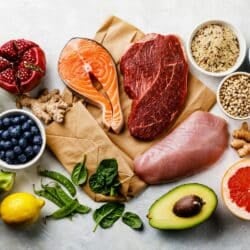




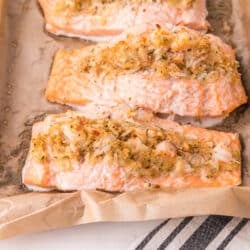
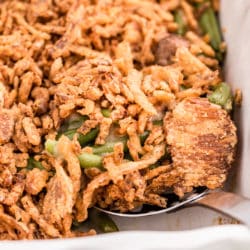










Thank you 🙏 thank you
It’s the best advise and help from you
These precautions that I always have problems
Now your advice will change my life , specially
After and before surgery 🙏❤️